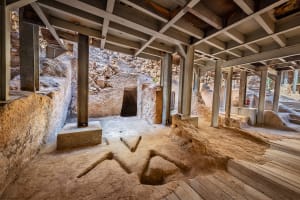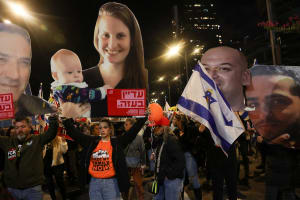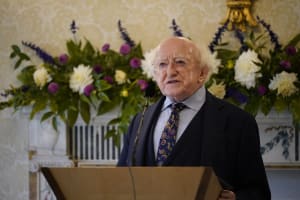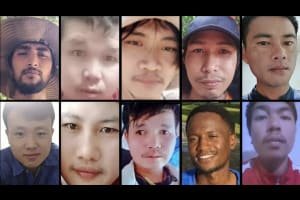Church leadership – Part 1

Our congregation, Nachalat Yeshua, is going through a period of transition from one generation to another. This is part of life, and of growing to full maturity as individuals, as families, as a local church. I thank God our Father and the Lord Yeshua the Messiah/Jesus Christ for bringing us thus far, and trust Him to help us go on together as the Holy Spirit leads us in knowing and doing the will of God.
Earlier this year, we asked over a month for candidates to become recognized as deacons in the congregation. The pattern that we followed in that is that given to us in the Book of Acts 6:1-7. The Apostles realized the need for more helpers in the work of the gospel within the new and growing number of believers in Jerusalem, and also realized that it was not for them to do all the work necessary. This is similar to when Jethro, Moses’ father-in-law, recognized that Moses was trying to do everything himself in ruling and leading and serving the Children of Israel in the desert after the Exodus from Egypt on the way to the promised land of Canaan. Jethro advised him to choose leaders from the heads of the families of the different tribes to help in the big work. The Apostles also heard complaints that there was also a bias towards the Hebrew speakers, while those who did not speak Hebrew were being neglected and discriminated against. We still do not have more “official” deacons in our congregation, although we have many who are serving. Praise the Lord for that, and thanks to all who are serving without a “title”. We are still seeking “official” deacons, suited and committed to the ministry.
The 12 Apostles asked the believers in Jerusalem, who were under their authority, to choose from among themselves “men of good reputation, full of the Holy Spirit and wisdom, whom the [Apostles] would appoint over this matter. But [the Apostles] would give themselves continually to prayer and to the ministry of the Word.” This is similar to the priesthood under the Law of Moses, to whom the family of Aaron, through Eleazar, was given charge over the holy intercession of representing the family of Israel before YHVH their God; and God then chose others within that priestly tribe of Levi to assist the priests in the service and work of the House of God. Not all Levites were priests/cohanim; not all priests became High Priest. But everyone was expected to do their part in serving and honoring YHVH and His ordained order. YHVH was both God and King to all Israel, and a Father, before they asked for a king like the Gentiles have, effectively saying that they did not want YHVH, or His order, to rule over them, which is still the case until today.
Today, this division of service and ministry would correspond to elders and to the deacons. God chose Israel to be a kingdom of priests, and in Messiah/Christ, all believers in the Body of Christ are priests in His kingdom; yet…there is still His order. Not all who serve are officially deacons; not all who teach are necessarily elders; not all deacons will become elders; not all elders will become the pastor. But the deacons are to assist the elders in serving and caring for the needs of the flock: the elders particularly in spiritual matters and “rule in the Lord over the congregation”; the deacons in “serving tables” and concerned with the material needs and help of the local congregation members, and with the preparedness and upkeep of the church’s facility (if there is one).
Under the Law, God appointed tribes and families to be the priests and kings. And within those tribes and families, He chose individuals, like Aaron from Levi, and like David from Judah, the youngest among his brothers and sons of Jesse. How did this affect the relationship between brothers within the same family? How did the tribes accept God’s choices? Joseph received a double blessing and land inheritance, but Ephraim was not given either the priesthood or the throne. We can look at the history and see that not all was well in the family which YHVH called to be His treasured people. Unity and peace and love were not the normal state of the people. There was jealousy, envy, rivalry, betrayal, rebellion. Everyone then and now were/are sinners. Many have done things completely unacceptable and inappropriate as humans in general, and as representatives of the holy and righteous God, in particular. God will deal with all this at the end, if not along the way. To whom more is given, more is required. What is our attitude to YHVH’s sovereignty and righteousness and wisdom?
In the New Testament for us, there is no designated priestly family or royal family. In Messiah/Christ, we are all priests. But, we are not Levitical priests, which was under the Law of Moses, but we are priests after the order of Melchizedek in Messiah, which transcends the Law, and preexisted the giving of the Law at Sinai, and will be the royal priesthood for those who rule and reign with Yeshua during His Kingdom. (Even if any of us could prove descendancy from Aaron, which I am not convinced that we can, that would not matter in Christ: we are all a new creation, and all of the credentials that we may have had in the flesh before must be reckoned, as the Apostle Paul said, as dung compared with knowing the Lord, and apprehending all that He has called us to, whatever our natural heritage, however honorable or dishonorable. Pride would want to claim special privilege, even within the Body, due to lineage.) All stand equal before the Lord Yeshua, who builds His church, and gives instructions by His own example, and by His Word and the Holy Spirit through His chosen men who wrote for us the New Testament scriptures. There is no automatic “dynasty” as it was under the Law, and which will be upheld and fulfilled during the coming 1000-year Kingdom, both for Levi and for David.
Not all seems to us logical or rational. God’s thoughts and ways and wisdom are other than ours; and He wants us to acquire His. Even under the Law, not all of the priests, including High Priests, and not all of the kings, were honorable or faithful in their character or in carrying out their responsibilities. We also know that in church history, until today, not all believers or pastors and bishops are living their lives and serving their flocks and brothers and sisters in a manner which honors the name of God our Father and the Lord Jesus Christ.
The Messiah chose 12 men to be His “special” disciples – Apostles – to whom He gave unique spiritual authority above others who serve Him, and they were taught to serve, rather than to be served. Among those 12 were two sets of brothers – Andrews and Peter; John and James (Jacob). Yeshua/Jesus was not “democratic”: He chose each of them. He was not “inclusive”: He did not include a representative from each of the 12 tribes of Israel, even though He is the promised Messiah and King for all Israel. And then, from among the 12 Apostles, He chose 3 to be especially close to Him – Peter, John, and James – and of these three, two were brothers, not to mention that all three had been business partners before He chose them to follow Him. How did these three, and the other 9 apostles feel about all this, and how did it affect their attitude and relationship toward each other? We can read that not all was peace and joy, and there was, just as under the Law, jealousy, rivalry, competitiveness, betrayal.
Within the Body of Messiah/Christ, Yeshua/Jesus gives some as He wills to be apostles, some prophets, some evangelists, some pastors and teachers. Each of these are supposed to work together for the “equipping of the saint for the work of ministry, for the building up of the Body of Christ, till we all come to the unity of the faith and of the knowledge of the Son of God, to a perfect man, to the measure of the stature of the fullness of Messiah; that we should no longer be children, tossed to and fro and carried about with every wind of teaching, by the trickery of men, in the cunning craftiness of deceitful plotting, but, speaking the truth in love, may grow up in all things into Him who is the Head – Messiah – from whom the whole body, joined and knit together by what every joint supplies, according to the effective working by which every part does its share, causes growth of the body for the edifying of itself in love.” (Eph 4:1-16)
We see from this that there are certain ones given particular gifting and responsibility and authority in the congregations, but also that everyone has his/her part to share in the growth and maturity of the “one new man” in Christ. As we have heard, not only must we love the Lord, but we must also love one another; not only do we relate to God, but we must also relate to one another – brothers and sisters, and fellow heirs of the Kingdom. We are a royal priesthood. This is priesthood: we care for one another’s spiritual health and assurance before God, as brothers and fellow heirs. Kingship now is “self-rule” under the Lord’s rule (part of the fruit of the Holy Spirit): We willingly submit and obey Him with faith and love and thanksgiving, because our Lord loves us, giving His life for us to save us from our sins and death and hell. We are all to be conformed to the image of the Son of God, to the glory of God our Father; and each of us has a part in sanctifying ourselves in cooperation with the Holy Spirit working to sanctify us by the Word of God and the blood of the cross.
For leadership in a local church, we all have a part in that our attitude and conduct and speech influences others as living stones being fit together for a spiritual house for God to dwell in. We are called to serve one another. We all influence those next to us, and those who are not believers as we live our lives among them. What “leadership” are we providing for bringing honor and glory to our heavenly Father’s holy name, and to the name of His Son, the Lord Jesus Christ/Yeshua the Nazarene.
God help us to be found faithful!
Who can be a deacon or an elder? (Part 2)
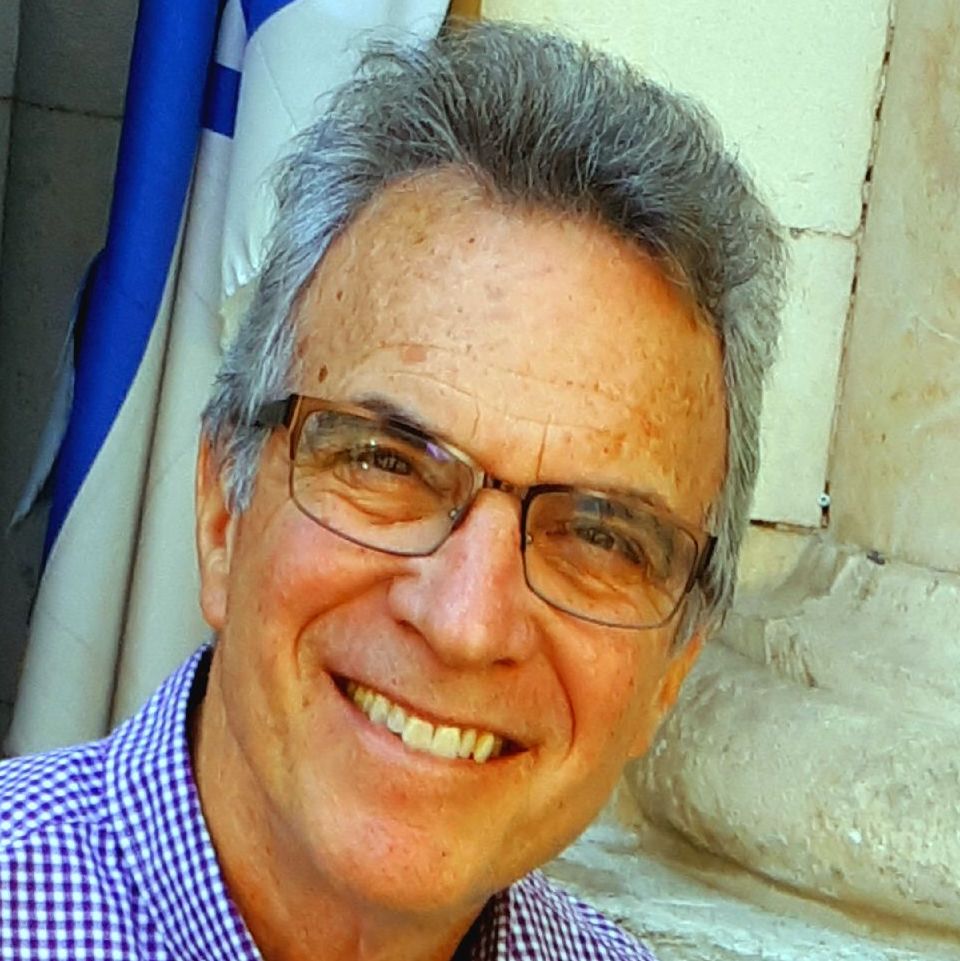
Howard Bass is the congregation pastor/leader of Nachalat Yeshua (Yeshua's Inheritance) in Beer Sheva, Israel.



